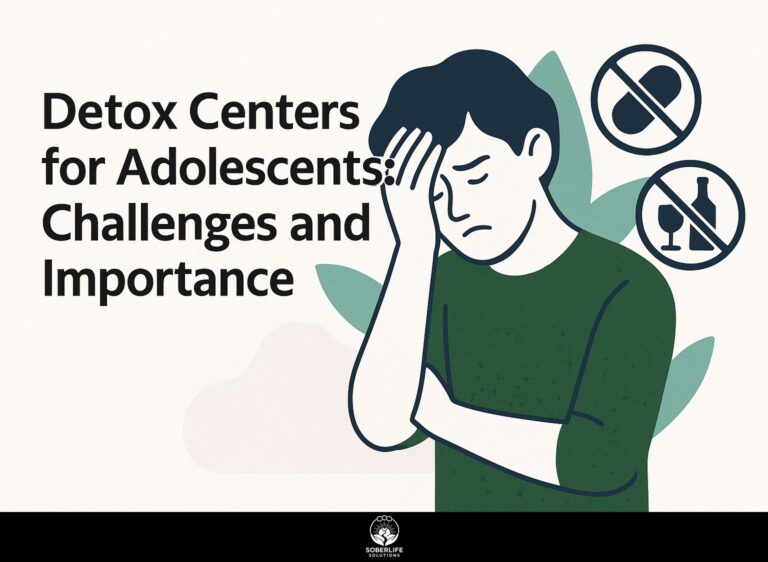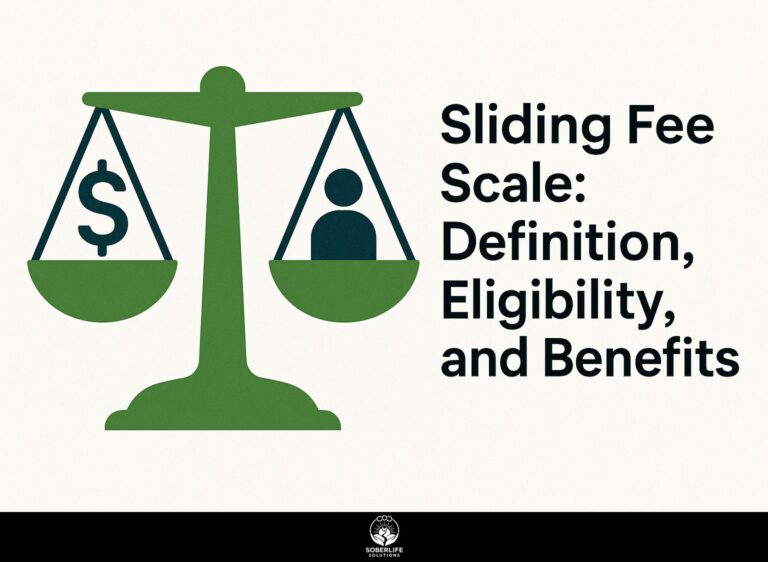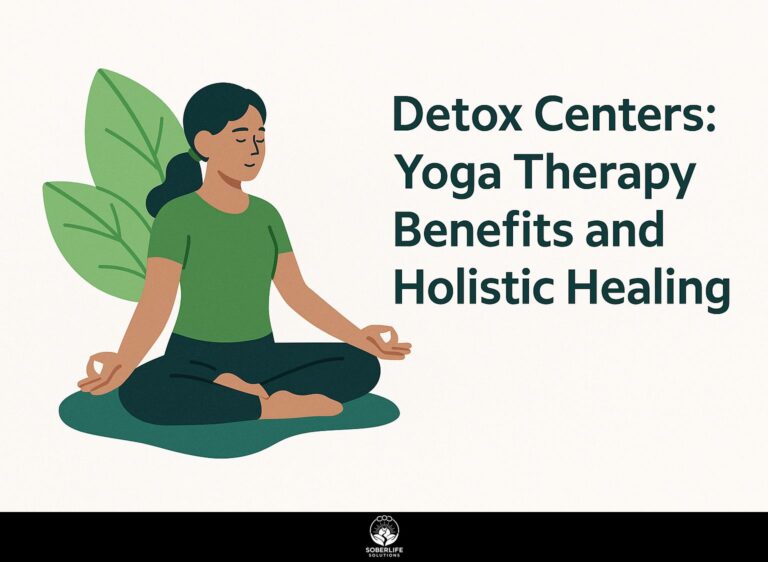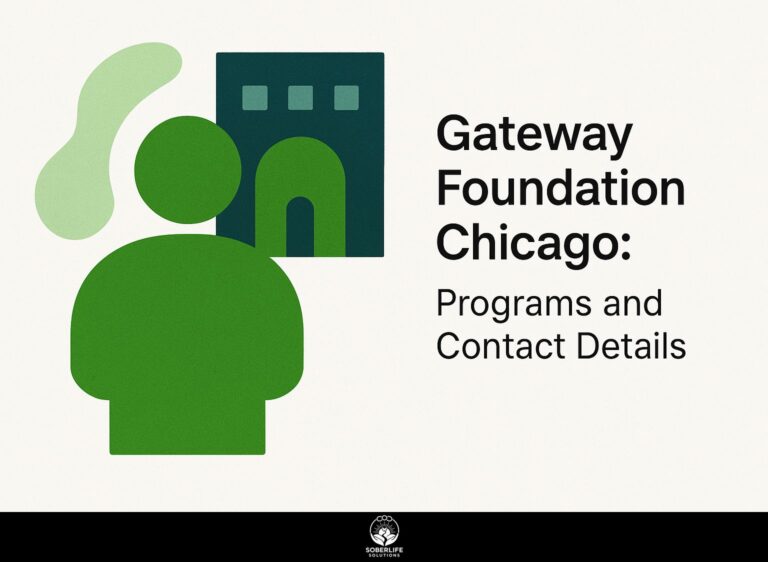Detox Centers: Spiritual and Chiropractic Services
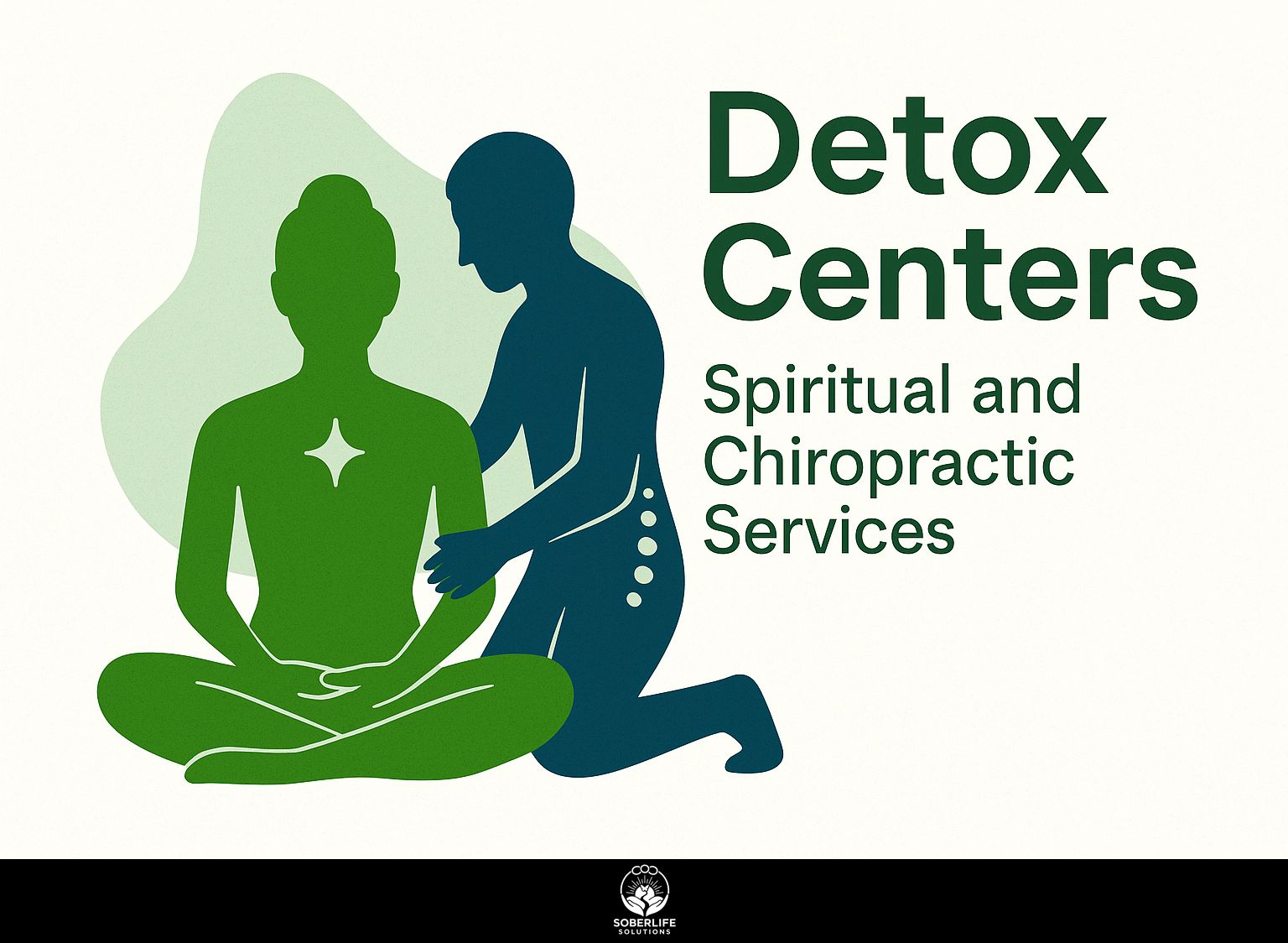
Struggling with alcohol addiction can feel overwhelming, but detox centers offer hope through a blend of spiritual and chiropractic services. Groups like the Community of Recovering People (CORP) and The Retreat offer personalized programs to assist individuals in their recovery process. In this article, learn how these complete methods can help you take control of your life and reach long-term health.
Key Takeaways:
Definition and Purpose
Detoxification is the doctor-led procedure of removing drugs or alcohol from the body, important for those wanting to stop using these substances.
This process is critical because it addresses physical dependence, allowing the body to stabilize without harmful substances.
Doctors and nurses are essential in watching for withdrawal symptoms, which can vary from minor issues to serious health problems. Supervision makes sure treatments, such as medications to reduce symptoms, are accessible.
For example, in cases of alcohol withdrawal, benzodiazepines may be administered to prevent complications like seizures. Detox usually lasts from a few days to a week, depending on the substance and a person’s health, so professional help is very important. This approach aligns with the guidelines provided by the Tennessee Department of Mental Health and Substance Abuse Services regarding medically managed inpatient detoxification.
Importance of Holistic Healing
Holistic healing looks at the connections between the mind, body, and spirit, helping people get better by addressing the underlying causes of issues.
This method often includes different therapies like yoga, meditation, and nutrition counseling, which together create a helpful setting for recovery.
For instance, a detox center may integrate daily meditation sessions, helping clients develop mindfulness and reduce anxiety. By offering group therapy as part of their recovery program, individuals can share experiences and build a community, further strengthening emotional resilience. This approach aligns with techniques for building resilience as mentioned in our analysis of Resilience: Benefits and Building Techniques.
Combining these elements helps detoxify the body, improves mental clarity, and enhances spiritual health, which are important for long-term recovery.
Spiritual Services Offered
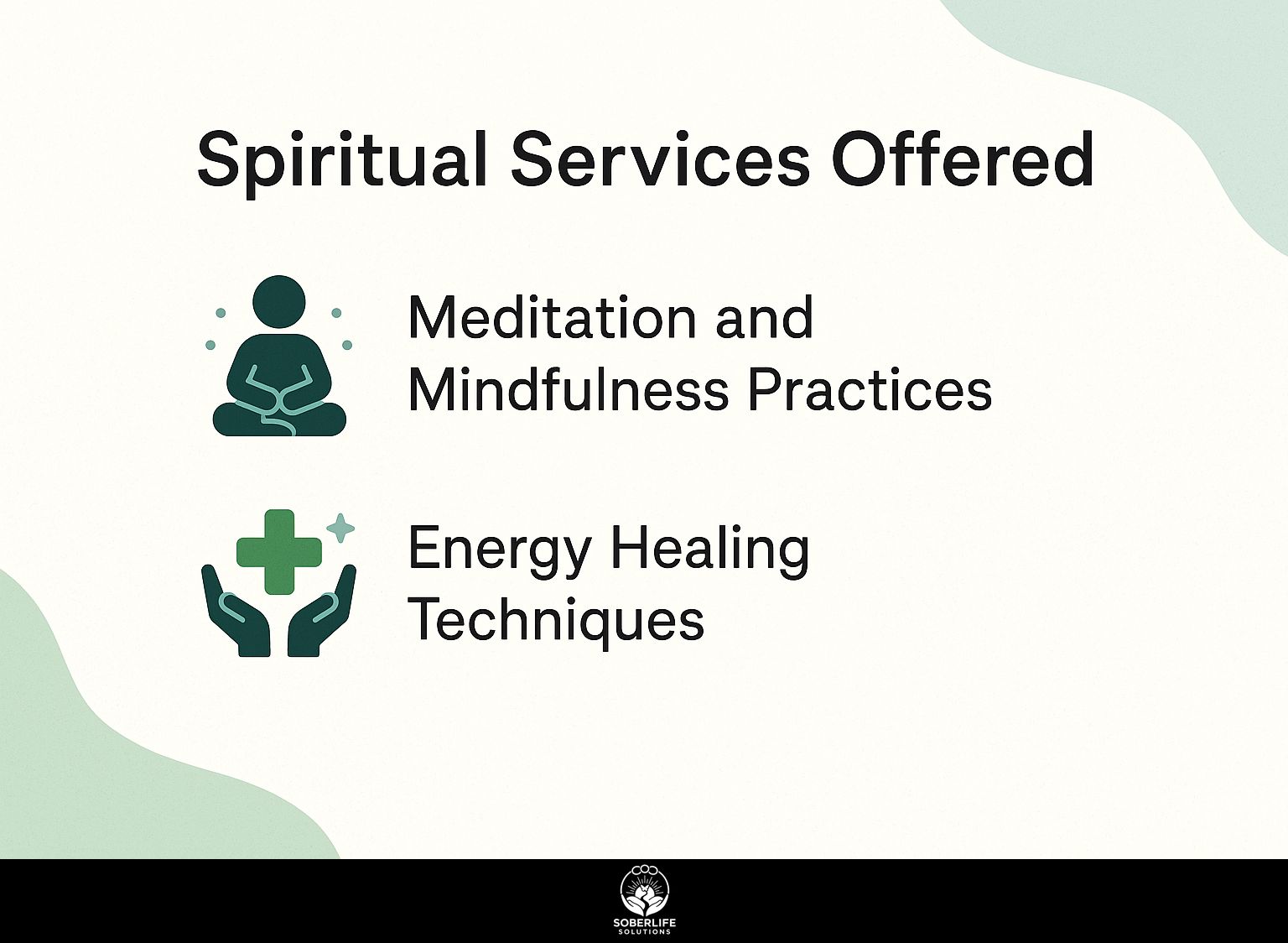
Spiritual services in detox centers help support healing beyond the physical, focusing on emotional and spiritual needs essential for long-term recovery.
Meditation and Mindfulness Practices
Meditation and mindfulness activities help individuals notice their thoughts and reduce anxiety, which is important for recovery.
Techniques like guided imagery and breath awareness are particularly effective in reducing cravings and promoting emotional stability.
Guided imagery involves visualizing peaceful settings or positive outcomes, helping to distract from urges. Trying an app like Insight Timer for guided sessions can make this experience better.
Breathe awareness encourages focusing on the breath, which calms the mind and can be practiced anytime. Incorporating these techniques into a daily routine can significantly improve emotional resilience and support recovery.
Energy Healing Techniques
Energy healing techniques, such as Reiki and acupuncture, can facilitate emotional release and promote physical healing during detoxification.
These practices help balance energy flow, addressing both psychological and physiological symptoms of withdrawal. For instance, a study in the Journal of Alternative and Complementary Medicine found that Reiki reduced anxiety levels in participants undergoing drug detox.
Similarly, acupuncture can lessen withdrawal symptoms and cravings, providing helpful support. By using these methods in detox programs, facilities make clients more comfortable and achieve better treatment results, with many clients saying they are more satisfied and less likely to relapse, as supported by extensive research published in UCLA Health.
Chiropractic Services Offered
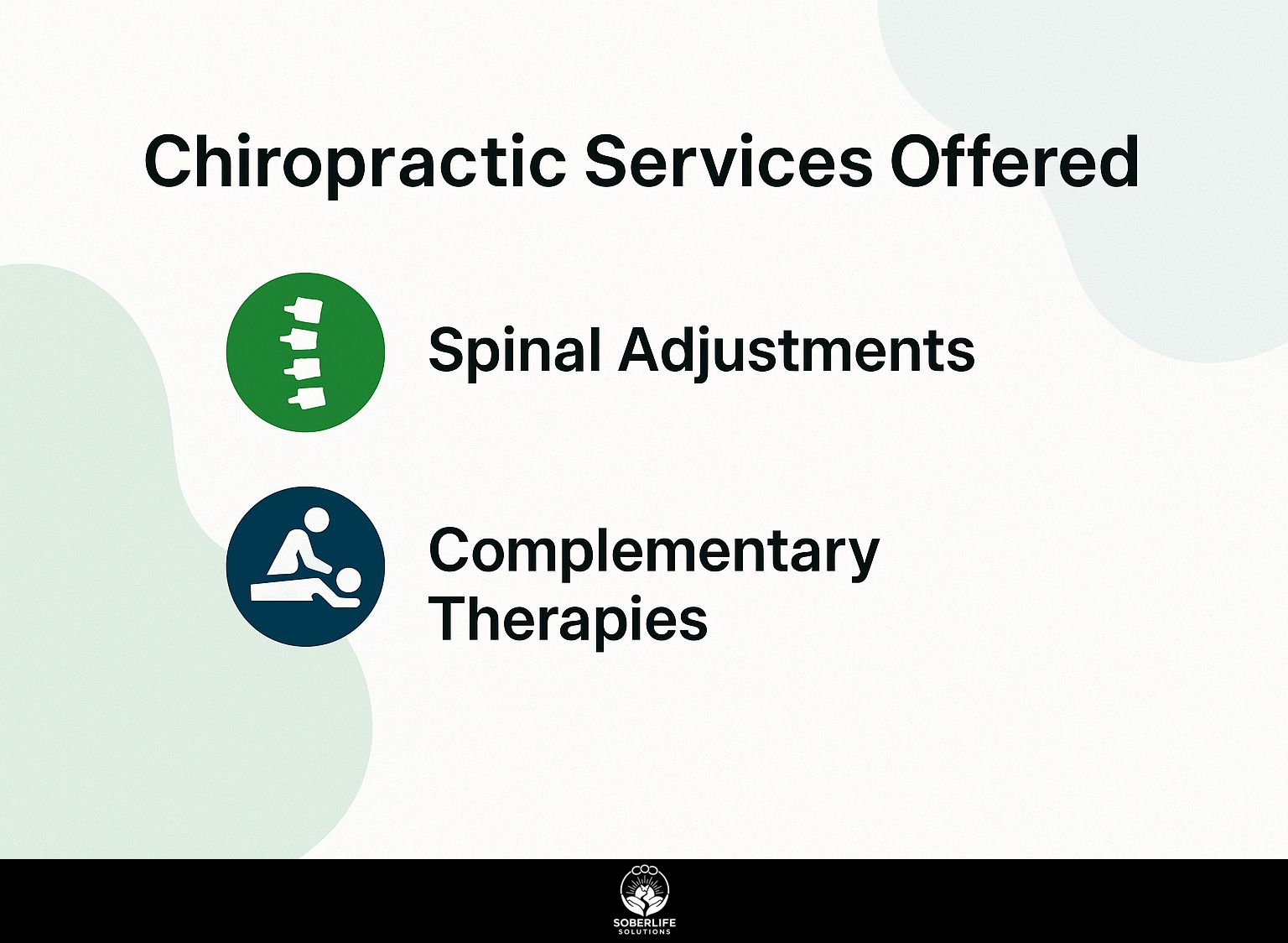
Chiropractic care in detox centers helps to align the spine and improve overall health, aiding the physical part of recovery.
Spinal Adjustments
Spinal adjustments facilitate the body’s natural healing processes, which can be particularly beneficial for individuals undergoing detoxification.
Chiropractors employ various techniques to perform spinal adjustments, including:
- Diversified Technique
- Gonstead Method
- Activator Method
These adjustments help relieve pressure on the nervous system, allowing for improved organ function and toxin elimination.
For example, the Gonstead Method targets exact spinal alignment, which can greatly improve blood flow and bodily functions during detox. Unlike other methods, the Activator Method uses a handheld device to give gentle pulses, making it suitable for sensitive patients.
These methods help maintain a healthy spine and aid the body in removing toxins.
Complementary Therapies
Complementary therapies, like massage therapy and nutritional counseling, improve the detox process by encouraging relaxation and physical well-being.
Other helpful treatments include:
- Acupuncture, which can ease withdrawal symptoms and lower anxiety.
- Yoga, which can improve mental clarity and build physical strength.
Art therapy can also be very helpful, allowing people to show their feelings without using words, which helps them heal emotionally.
Including these therapies helps with physical recovery and also focuses on the emotional and mental parts of detox, creating a complete healing environment.
Typically, these therapies complement the detox process in dedicated sessions throughout the week, enhancing overall well-being during recovery.
Integrating Spiritual and Chiropractic Approaches
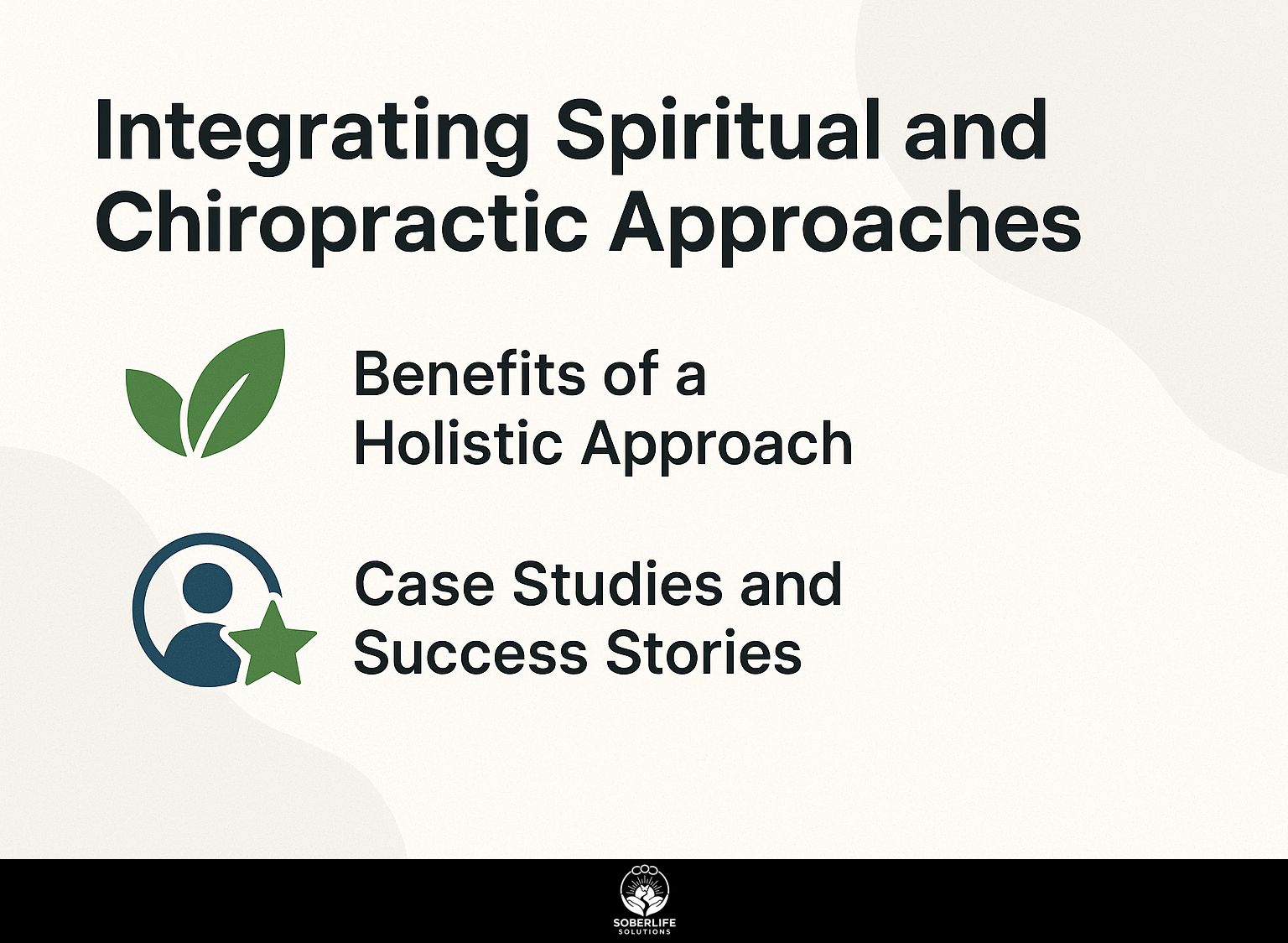
Combining spiritual and chiropractic methods in detox centers results in a full treatment plan that covers different parts of recovery.
Benefits of a Holistic Approach
Using a complete method can lead to better recovery results, with studies showing a 30% rise in retention rates among people using combined services.
Studies show that people who receive chiropractic treatment along with spiritual counseling often feel better emotionally and physically.
For example, a case study from a wellness center showed that individuals who participated in both modalities experienced a 40% faster recovery from chronic pain.
Tools such as patient satisfaction surveys and retention tracking software can help practitioners measure these outcomes effectively.
Combining services can bring clients together, keeping them more involved and dedicated to their treatment plans.
Case Studies and Success Stories
Many success stories from detox centers show the positive effects of including spiritual and chiropractic services in treatment plans.
Sarah, who struggled with addiction for years, found new motivation after completing a detox program that included yoga, meditation, and chiropractic care. These practices helped reduce her physical pain and improved her mental focus.
Similarly, John credits his recovery to a program that combined nutritional counseling and weekly chiropractic sessions, which significantly improved his overall well-being.
These customized methods show that addressing both mental and physical health can result in significant and enduring changes for people looking to heal.
Choosing the Right Detox Center
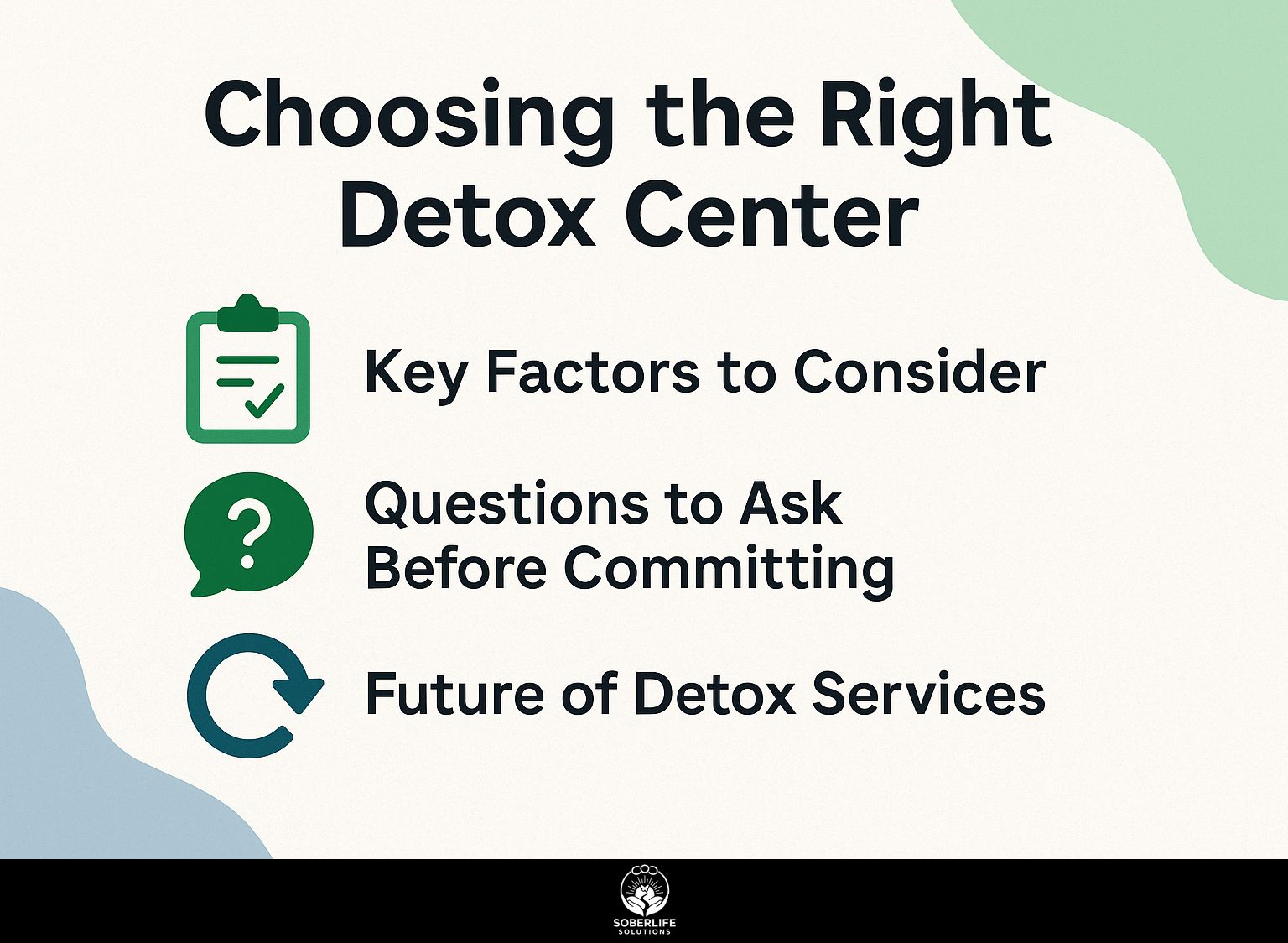
Choosing the right detox center is essential for successful recovery, with many factors affecting the decision.
Key Factors to Consider
When looking at detox centers, important things to check are their official recognition, how they treat patients, and if they offer services that treat the whole person.
Consider the center’s staff qualifications and their experience in substance abuse treatment. Research the types of therapies they offer, such as cognitive behavioral therapy or group sessions, as these can greatly impact recovery.
Features such as private rooms, exercise centers, and nutrition programs improve the recovery setting. It’s important to verify these details using reliable sources like SAMHSA. For those interested in a comprehensive overview, this analysis by WebMD covers the full spectrum of considerations to help you find a center that suits your goals, including certification and personal needs matching.
Questions to Ask Before Committing
Before choosing a detox center, people should ask particular questions to make sure the center fits their recovery needs and beliefs.
Essential questions to consider include:
- What is the staff-to-client ratio? This shows how much individual focus you will receive.
- What types of therapies are available? Knowing the different treatments helps you see how the center operates.
- Ask about their aftercare programs to confirm they offer continued help after detox.
- Ask about staff qualifications and success rates, as this transparency will reveal the center’s commitment to high standards and effective recovery practices.
Asking these questions can greatly improve the care you get.
Future of Detox Services
Detox services will probably include more overall health approaches, focusing more on care that understands past trauma.
Plus traditional therapies, detox centers will increasingly employ technology, such as virtual reality for exposure therapy and mobile apps for tracking emotional wellness and cravings.
For example, platforms like Quit Genius provide users with personalized support, helping them stay engaged in their recovery process.
Support networks based in communities, like groups run by peers, will become more important, improving responsibility and encouraging shared experiences.
By focusing on both technology and community, detox services will build a stronger support network that meets personal needs. For a deeper understanding of how detox services are evolving to improve patient outcomes, see also: Detox Services: Types, Effectiveness, and Patient Outcomes.
Frequently Asked Questions
What types of services does a detox center with spiritual and chiropractic services offer?
A detox center with spiritual and chiropractic services may offer a variety of services such as spiritual counseling, meditation and yoga classes, chiropractic adjustments, massage therapy, and nutritional guidance.
How can spiritual services benefit the detox process?
Spiritual services can provide emotional support, help people find personal strength and calmness, and guide them in making positive life changes, all of which can help in the detox process.
Can chiropractic services help with detoxing?
Yes, chiropractic services can help with detoxing by promoting proper alignment and function of the body’s nervous and musculoskeletal systems, which can improve overall health and wellbeing during the detox process.
Are these services only for certain types of detox programs?
Detox centers with spiritual and chiropractic services provide different detox programs for drug and alcohol issues, general health, and overall detox.
How do spiritual and chiropractic services work together in a detox center?
Spiritual and chiropractic services come together to offer a complete method for detoxing. While spiritual services focus on mental and emotional well-being, chiropractic services focus on physical well-being, creating a well-rounded approach to detoxing the body and mind.
Is there any religious affiliation with spiritual services offered at these detox centers?
It depends on the specific detox center. Some may have a specific religious affiliation, while others may offer spiritual services that are open to individuals of all faiths or no religious beliefs at all.

